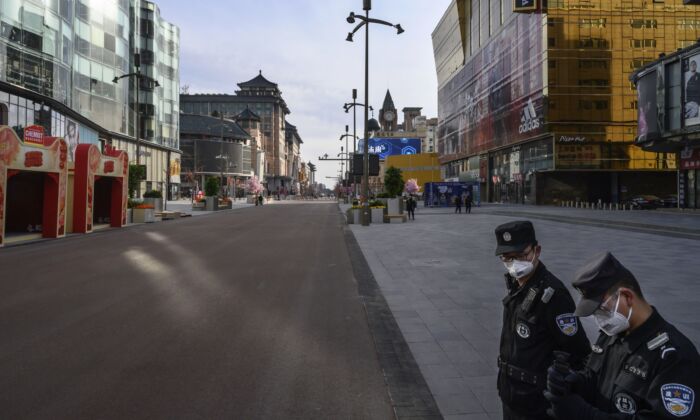‘Unhealthy Partisanship’: Move Afoot to Improve the Workings of Parliament
The Chinese central government has ordered businesses to resume operations after an extended Lunar New Year holiday. But many are afraid of potentially contracting the novel coronavirus COVID-19 from human interaction, and refused to reopen.
Some local authorities have resorted to deploying police, who enter company premises and force them to operate.
Others have hired chartered planes and buses to pick up migrant workers from their village hometowns and transport them to work in major cities.
Forced To Work
Scientists have confirmed that COVID-19 can be transmitted human-to-human.
According to authorities in Jiangbei district located within Ningbo City, Zhejiang province, a 56-year-old man caught the coronavirus within just 15 seconds of standing next to a 61-year-old infected woman, while they were at the local Shuangdongfang market on Jan. 23.
Many Taiwanese firms with operations in mainland China are nervous about returning to work, but were forced by local authorities to reopen.
On Feb. 17, Hung Sun-Han, Taiwanese lawmaker from the Democratic Progressive Party (DPP), said at a press conference in Taipei, “Now every level of the Chinese government is in chaos trying to control the outbreak. The situation is not transparent. We can foresee that Taiwanese who were forced to go back to work in China are facing tremendous instability and life-threatening risks.”
But Hung didn’t provide details about how Chinese authorities coerced businesses.
A renowned Taiwanese financial reporter Emmy Hu posted on her Facebook page what she learned from Taiwanese execs who own factories: “The heads of several large Taiwanese firms told me that the police bureau in their cities ordered them to resume operations. A Taiwanese businessman from Kunshan City [in Jiangsu province] told me that police visited his office and forced him to call employees who weren’t in town, and [convince them to] come back and work. They [authorities] sent police to each factory to supervise operations.”
Hu also said that many execs cannot buy enough facial masks for their employees. She said several businesses have more than 100,000 employees, many of whom need to travel back to their workplace after traveling to their hometowns during the New Year holiday. The execs worry about the possibility that an employee could have contracted the virus in their hometown or on the way to work—and transmit the virus to their colleagues if they return to work.
Local Police
The Tianjin City Port police bureau announced via a Feb. 16 post on its official Sina blog that police departments across the country have taken action to support companies resuming operations.
Several provinces’ police bureaus issued special ID cards to migrant workers, which grant them the same privileges as native residents—as an incentive for them to return to their factory workplaces. Employers typically do not help migrant workers apply for such cards because the process is complicated.
Several provinces’ police bureaus also changed local rules to support the transport of factory work materials, such as setting up special lanes for trucks on highways.
In Yunnan province in western China, the police bureau started requiring that residents scan a QR code when they enter public spaces. The app can track down the contacts of diagnosed virus patients, and ensure that they are at a safe distance from workplaces, according to police.
State-run media The Paper reported on Feb. 28 that several provincial and city governments organized chartered buses, airplanes, and trains to bring workers from their hometowns to their workplaces. Authorities promised to pay partial or total travel costs.
Although using chartered vehicles limits the workers’ contact with other passengers, there is still a risk of infection among the workers, who come from different villages and towns.
On Feb. 18, Sun Shuo, mayor of Xicheng district of Beijing, said at a daily press conference that one district government employee is from Hubei province. He went back to his hometown during the New Year holiday.
After he came back to Beijing, he went to work directly because he was in good health. On Feb. 11, he received a phone call from his hometown and was told that one of his family members was diagnosed with the virus. He then reported to his manager and self-quarantined at home.
The employee was eventually also diagnosed with the virus. 69 other staff at the Xicheng district government office were identified as close contacts and had to be quarantined.
This article is from the Internet:Amid Businesses’ Virus Fears, Police Deployed to Force Companies Into Resuming Operations
